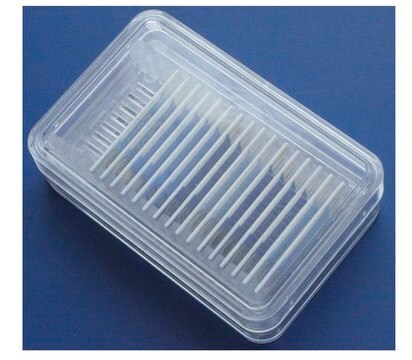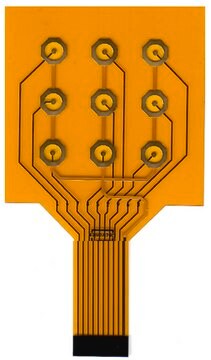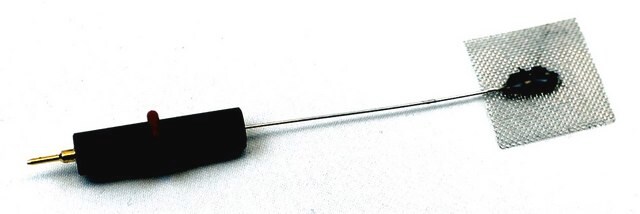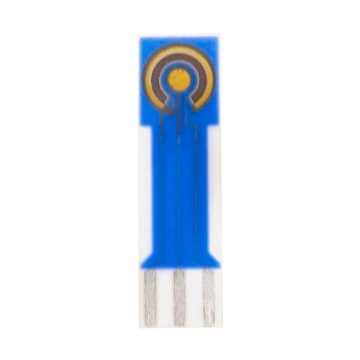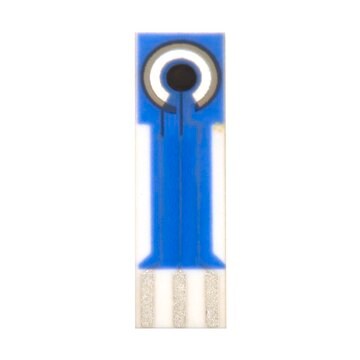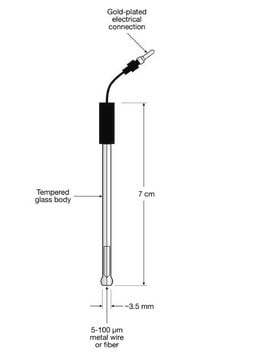935034
AC1 Screen Printed Electrodes
20 units (2mm Graphite Working; Graphite Counter; Silver/Silver Chloride Reference)
Synonyme(s) :
SP-1402
Se connecterpour consulter vos tarifs contractuels et ceux de votre entreprise/organisme
About This Item
Code UNSPSC :
41111761
Produits recommandés
Description générale
The sensor is formed on a corundum ceramic base. On to this surface the working, the reference and the auxiliary electrodes are applied. The working and the auxiliary electrodes are made of variety of materials. At the end of the sensor there is a contacting field which is connected with the active part by the silver conducting paths which are covered by a dielectric protection layer. A biochemically active substance can be immobilised on the working electrode of the sensor to create a biosensor. We offer Screen printed electrodes (2mm Graphite Working; Graphite Counter; Silver/Silver Chloride Reference) for R&D activities with following physical parameters:
Dimensions:Weight: 0.5 gm; Length: 25.40 mm; Width: 7.26 mm; Thickness: 0.63 mm
Dimensions:Weight: 0.5 gm; Length: 25.40 mm; Width: 7.26 mm; Thickness: 0.63 mm
Application
Screen printed electrodes (2mm Graphite Working; Graphite Counter; Silver/Silver Chloride Reference) are ideal for electrochemical detection. The various application areas of Screen Printed Electrodes are:
(1) for the detection of common environmental pollutants such as metal ions and organic compounds;
(2) as enzymatic biosensors, immunosensors and DNA-based sensors for pharmaceutical and clinical usage;
(3) also in emerging applications of fabricating lithium-ion batteries, solar cells, and large area LED matrix.
(1) for the detection of common environmental pollutants such as metal ions and organic compounds;
(2) as enzymatic biosensors, immunosensors and DNA-based sensors for pharmaceutical and clinical usage;
(3) also in emerging applications of fabricating lithium-ion batteries, solar cells, and large area LED matrix.
Faites votre choix parmi les versions les plus récentes :
Certificats d'analyse (COA)
Lot/Batch Number
It looks like we've run into a problem, but you can still download Certificates of Analysis from our Documents section.
Si vous avez besoin d'assistance, veuillez contacter Service Clients
Déjà en possession de ce produit ?
Retrouvez la documentation relative aux produits que vous avez récemment achetés dans la Bibliothèque de documents.
Notre équipe de scientifiques dispose d'une expérience dans tous les secteurs de la recherche, notamment en sciences de la vie, science des matériaux, synthèse chimique, chromatographie, analyse et dans de nombreux autres domaines..
Contacter notre Service technique